Simplified hypertension control indicators
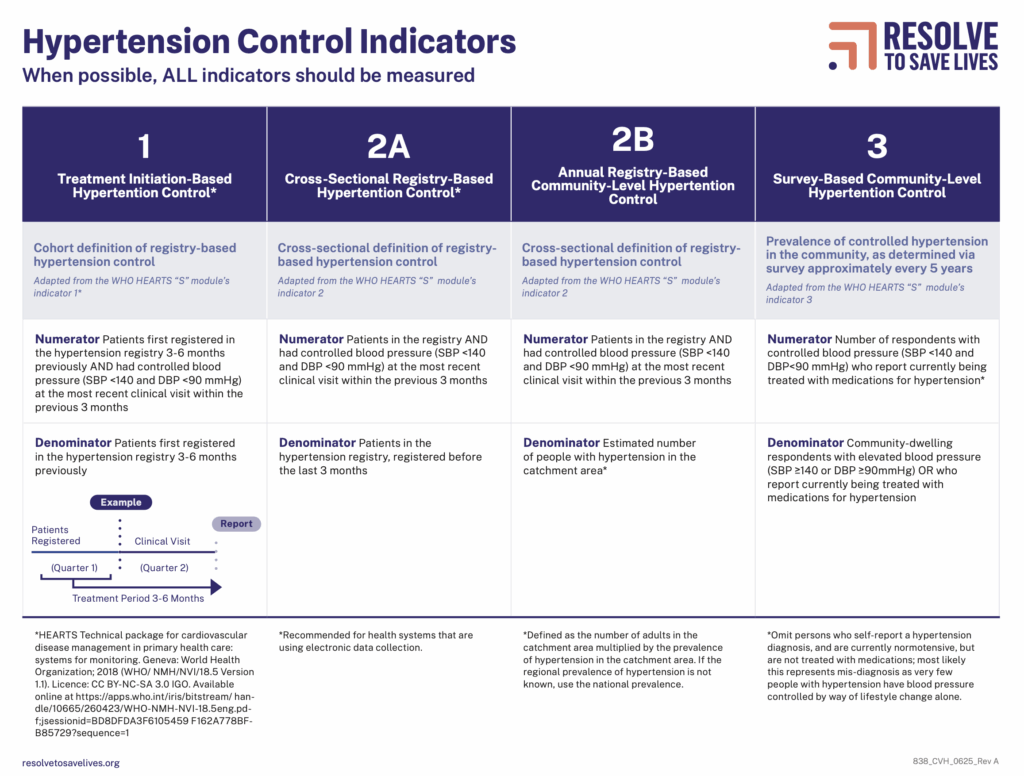
Simplified indicators adapted from the WHO HEARTS “S” module by Resolve to Save Lives
Watch: “One penny, one pill.” That’s all it costs to control high blood pressure.
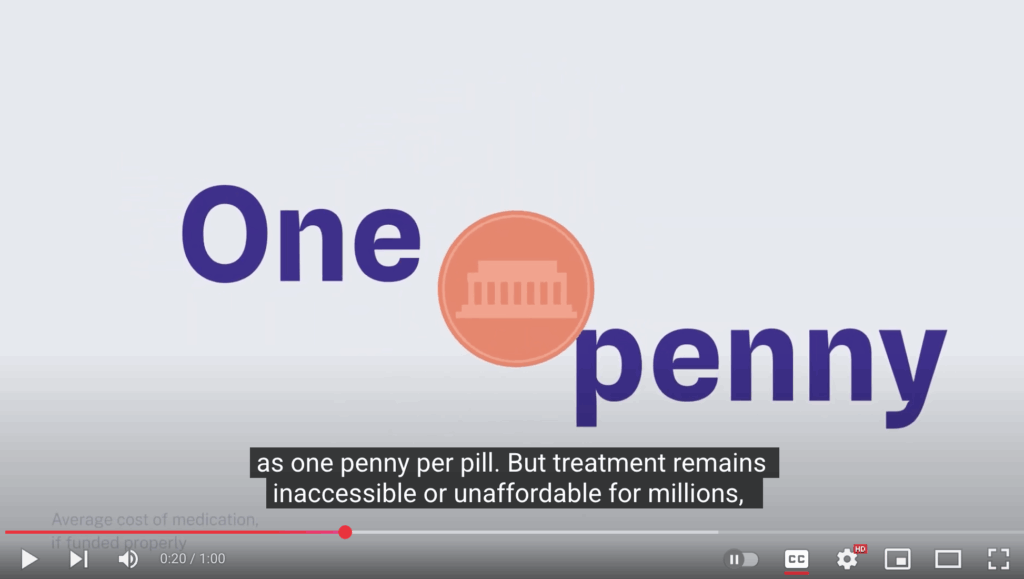
Blood pressure-lowering drugs can cost as little as one penny per pill. Governments, funders, and the private sector must prioritize improving accessibility of life-saving blood pressure-lowering medicines to increase global blood pressure control from 21% today to 50% by 2030. Doing so would help save 75 million lives and prevent 150 million heart attack and […]
Factors associated with hypertension care follow-up in the Ethiopia HEARTS program
In World Heart Federation’s Global Heart, this article co-authored by Resolve to Save Lives dives into the impact of HEARTS interventions and improvements to access to medicines made in 2022 in controlling high blood pressure in Ethiopia, and provides recommendations for further progress. Through patient-centered interventions such as extending appointment intervals, prescription refills, and expanded […]
Analysis of costs in implementing the HEARTS hypertension program in Nigerian primary care
A new article co-authored by Resolve to Save Lives dives into the cost of scaling up HEARTS hypertension services in Nigeria to help prevent and control high blood pressure, and outlines the next steps to lowering the cost of HEARTS implementation. Abstract Background The Nigeria Hypertension Control Initiative (NHCI) program, launched in 2020, integrates […]
Ethiopia National Infection Prevention and Control Policy
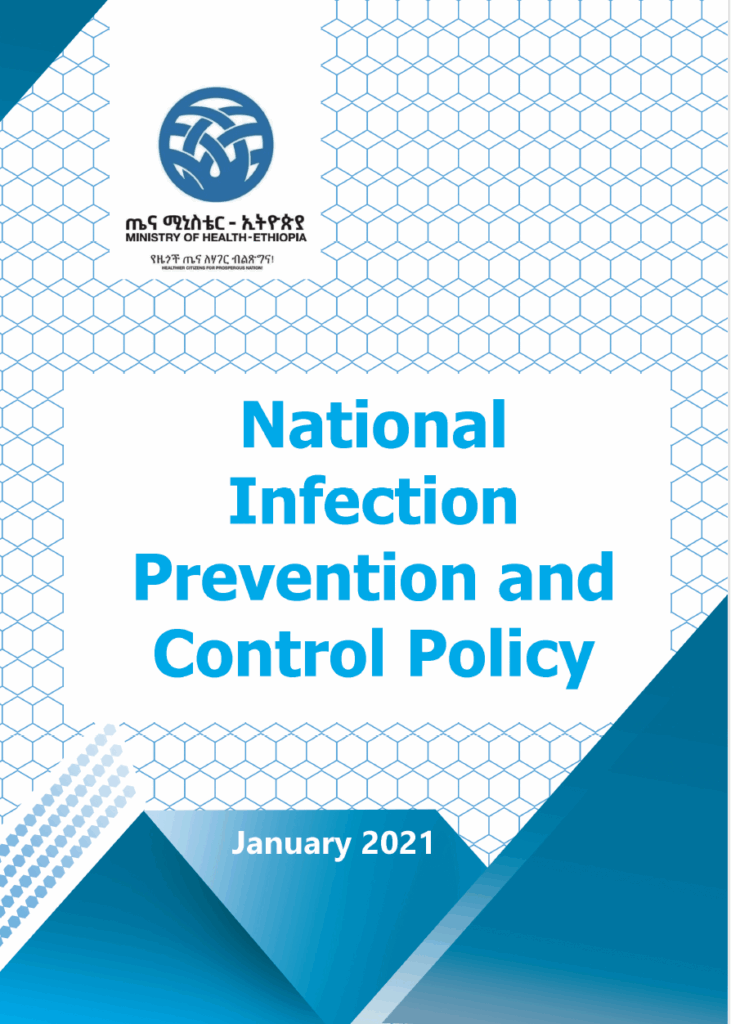
The Ministry of Health Ethiopia, in collaboration with all relevant stakeholders; in line with internationally acclaimed standardized recommendations has developed this National Infection Prevention and Control Policy for Health Care Services to assist health care workers and other IPC stakeholders in the design, implementation, monitoring, and evaluation of IPC programs in Ethiopia. The Ministry remains […]
Ethiopia National Infection Prevention and Control Program (IPC) Monitoring and Evaluation Plan 2021/22-2025/26
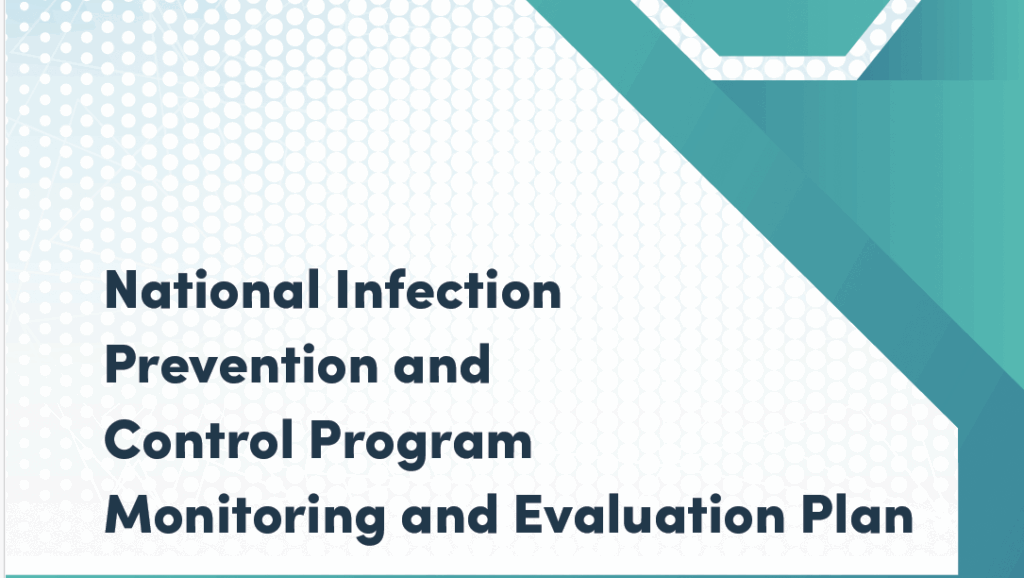
This IPC Monitoring and Evaluation Plan 2021-2026 from Ethiopia’s Ministry of Health was developed to be used at all levels of the health care system and will help to measure and monitor the progress of the implementation of the national IPC Policy, Strategy recommendations and Strategy Roadmap activities including the IPC practices at health facility […]
Ethiopia National Healthcare Associated Infections (HAIs) Surveillance Guideline
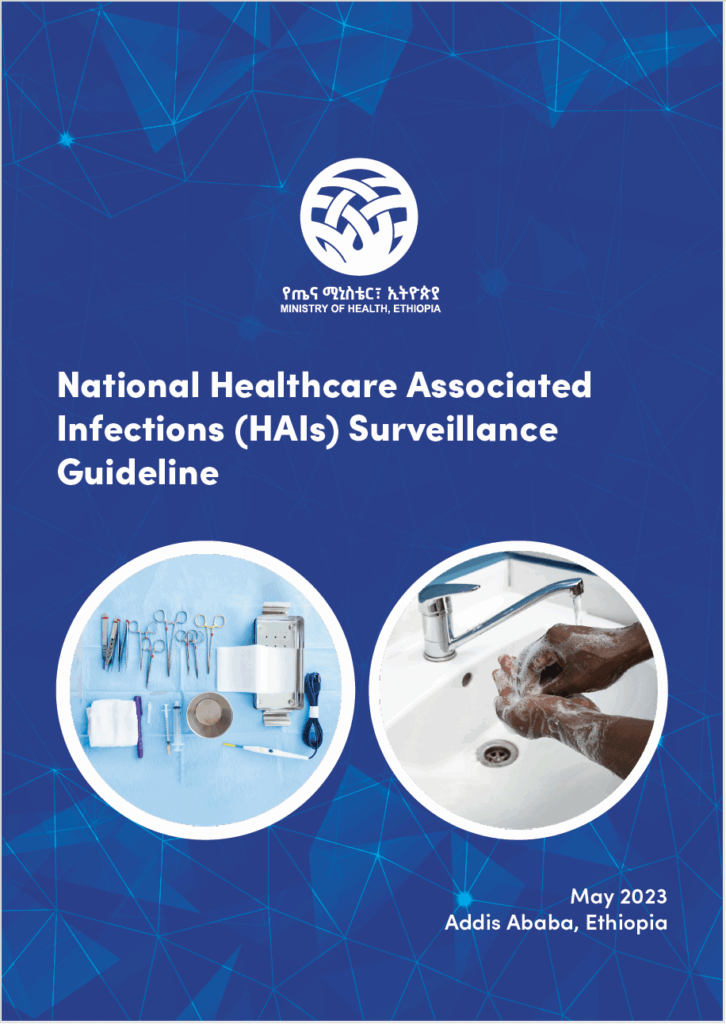
Ethiopia National Healthcare Associated Infections (HAIs) Surveillance Guideline is intended to serve as a guide for health care professionals in general, and for IPC professionals in particular, to ensure that the critical elements and methods of surveillance for health care-associated infections (HAIs) are incorporated into their practice. It provides guidance for each of the surveillance […]
Ethiopia National Infection Prevention and Control Strategy and Roadmap 2021/22-2025/26
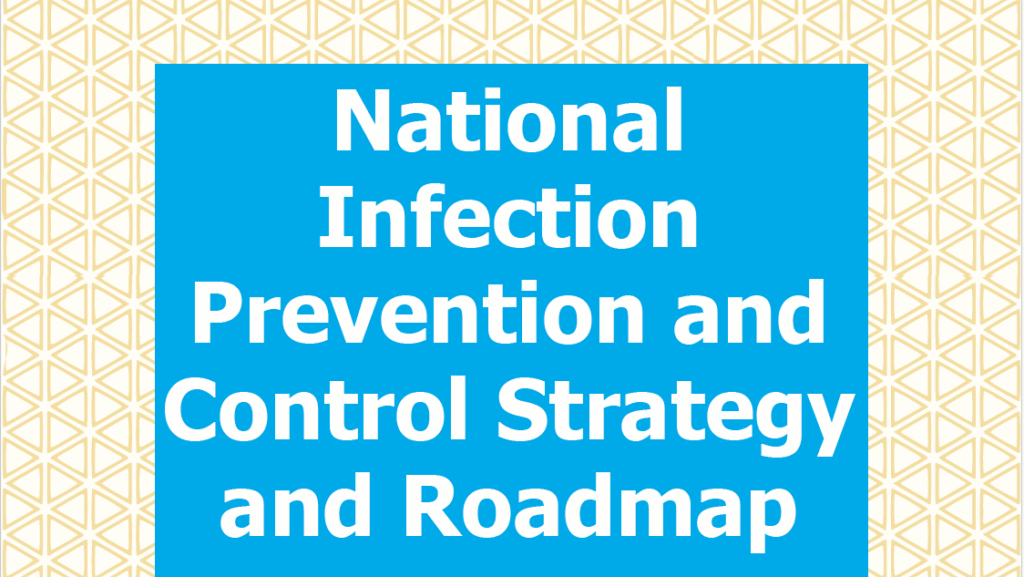
Ethiopia’s national IPC strategy and roadmap for 2021-2026 is intended to guide and outline the strategic interventions required to prevent, reduce and control the development of health care-associated infections (HAIs) and antimicrobial resistance (AMR), ultimately improving patient safety and health outcomes.
Ethiopia national IPC reference manual, Volume 2: Advanced and special settings
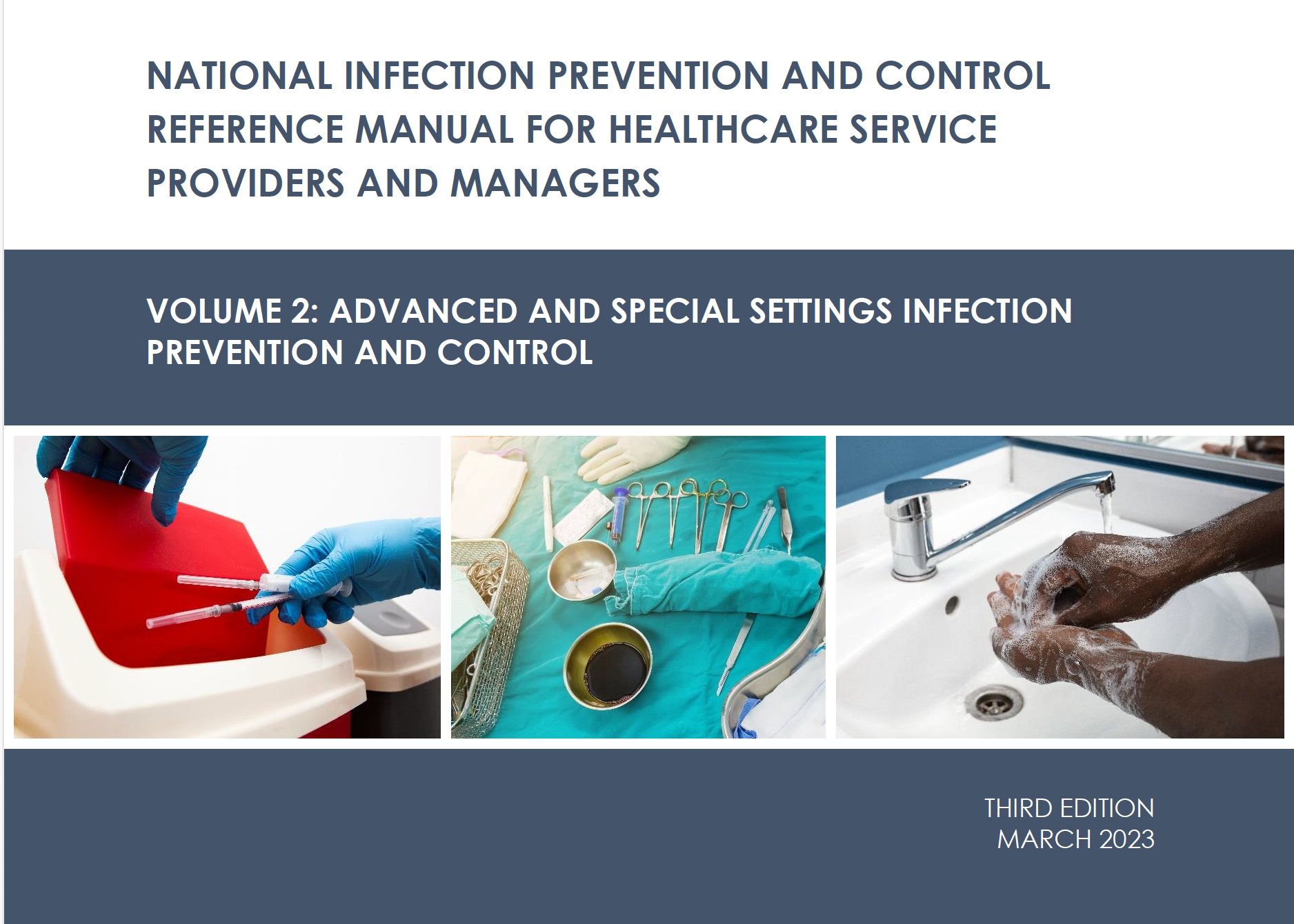
Full title: National infection prevention and control reference manual for healthcare service providers and managers, Volume 2: Advanced and special settings infection prevention and control, Third edition. The manual is divided in two volumes: Volume I covers general IPC and Volume II addresses more advanced IPC and special settings. The document serves as a standardized […]
Ethiopia national IPC reference manual, Volume 1: General infection prevention and control
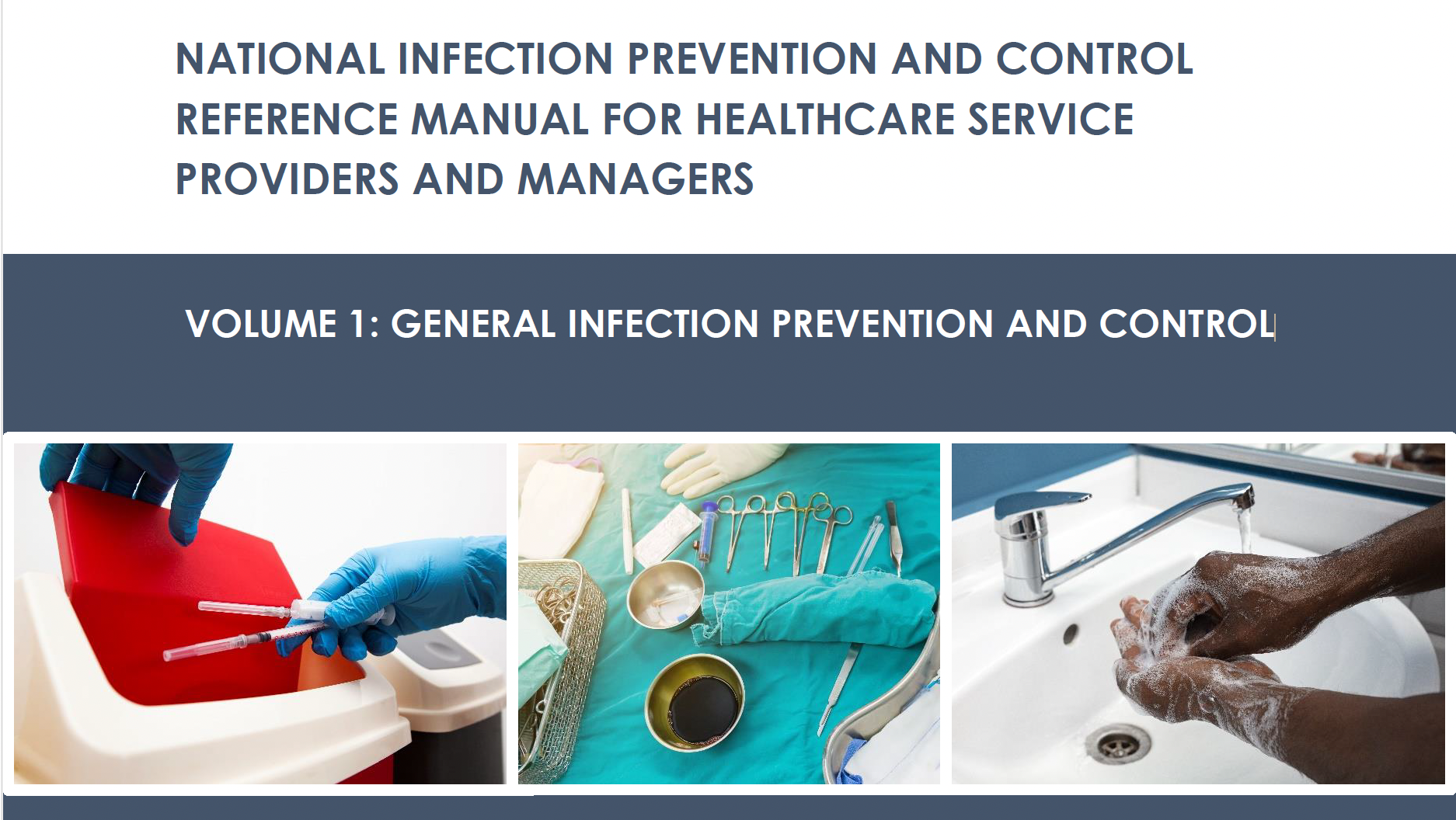
Full title: National infection prevention and control reference manual for healthcare service providers and managers, Volume 1: General infection prevention and control, Third edition. The manual is divided in two volumes: Volume I covers general IPC and Volume II addresses more advanced IPC and special settings. The document serves as a standardized IPC reference manual […]
Unleashing the full potential of 7-1-7
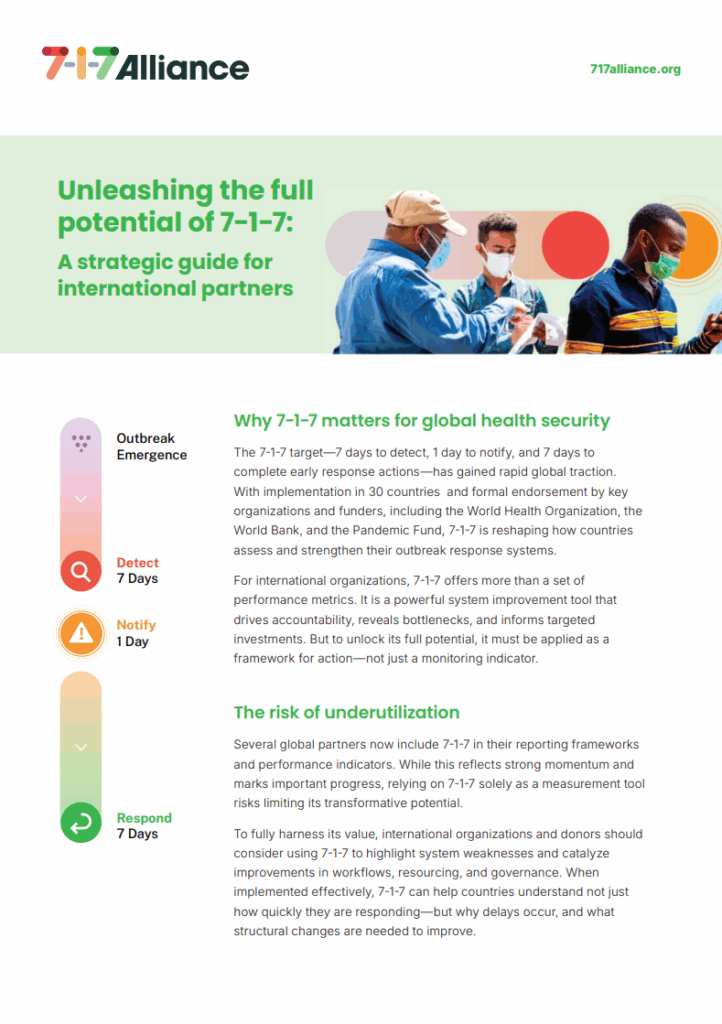
A strategic guide for international partners on the powerful system improvement tool that drives accountability, reveals bottlenecks, and informs targeted investments.
Providing the medicines patients need to control high blood pressure
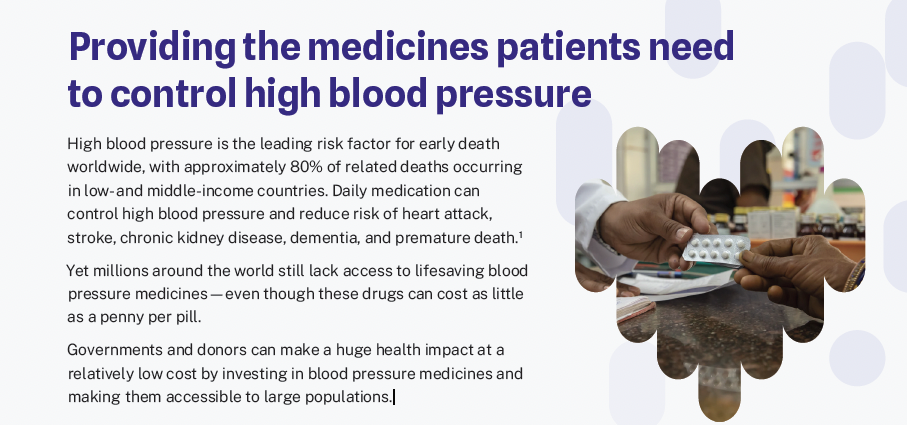
High blood pressure is the leading risk factor for early death worldwide, with approximately 80% of related deaths occurring in low- and middle-income countries. Daily medication can control high blood pressure and reduce risk of heart attack, stroke, chronic kidney disease, dementia, and premature death.1 Yet millions around the world still lack access to lifesaving […]
Position paper: Mandatory sodium reduction targets for processed foods
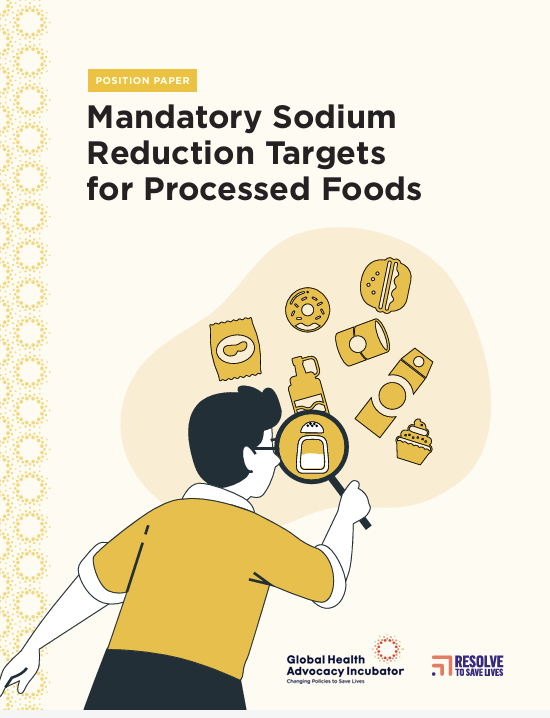
This position paper from Global Health Advocacy Incubator (GHAI) developed in partnership with Resolve to Save Lives, outlines the key steps needed to establish effective mandatory sodium reduction targets, informed by country experiences where these policies have been successfully implemented. It also offers clear, evidence-based recommendations to guide policymakers and advocates in shaping and advancing […]
Proven ways to address obesity, improve health, increase government revenue, and reduce health care costs
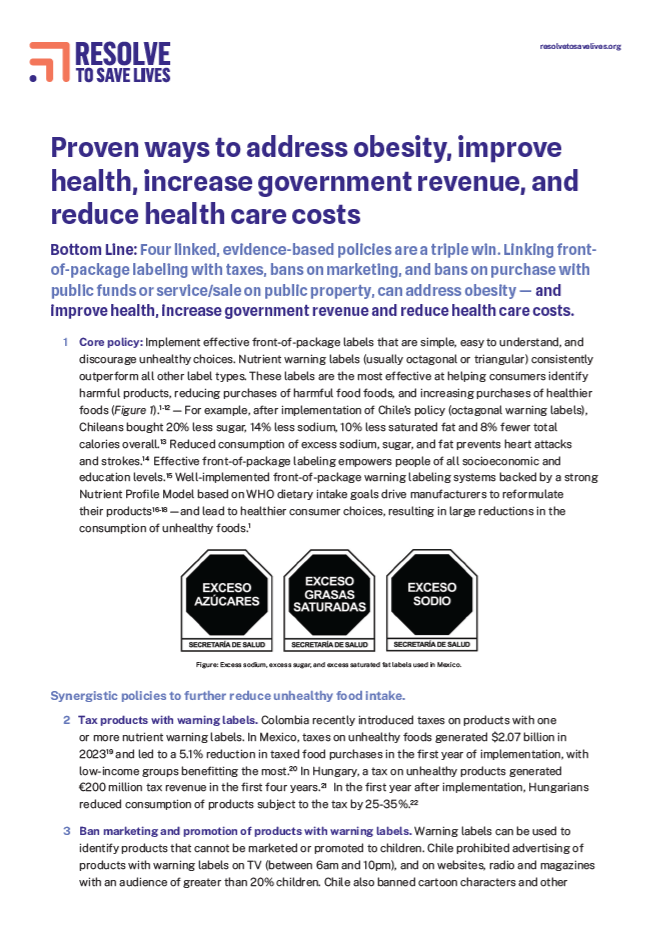
Linking front-of-package labeling with taxes, bans on marketing, and bans on purchase with public funds or service/sale on public property, can address obesity — and improve health, increase government revenue and reduce health care costs.
Front-of-package labeling systems
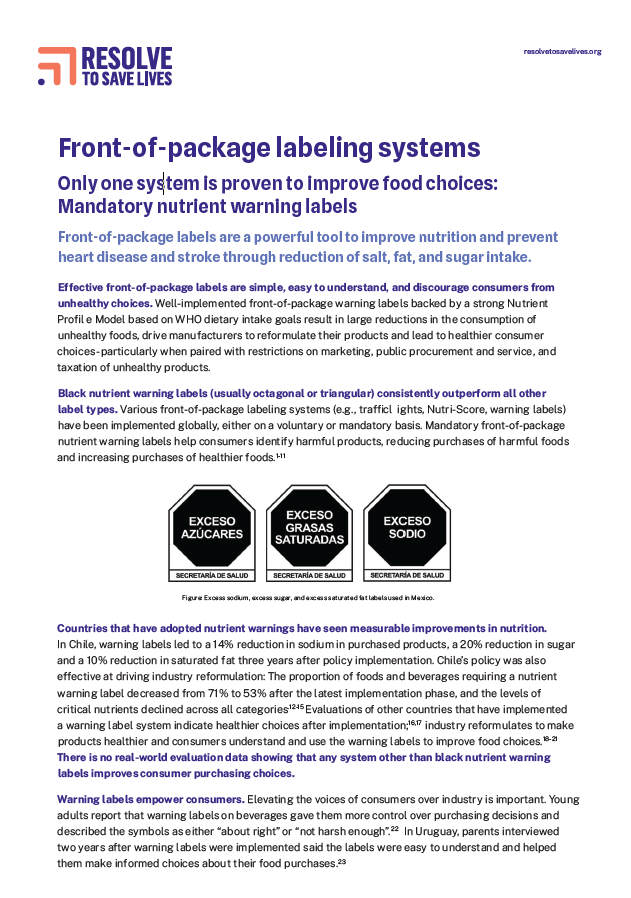
Front-of-package labels (FOPL) are a powerful tool to improve nutrition and prevent heart disease and stroke through reduction of salt, fat, and sugar intake. Only one system is proven to improve food choices: Mandatory nutrient warning labels.
Healthy revenue: Four taxes, three wins
Background New financial and other challenges threaten decades of public health progress. In Africa, half of the continent’s population lacks access to essential health services and more than 150 million people are pushed into or deeper into poverty each year by out-of-pocket health expenses. Health taxes on four harmful products—tobacco, alcohol, sugar-sweetened beverages, and […]
Primary Health Care Questions for Surveys (PHCQS)
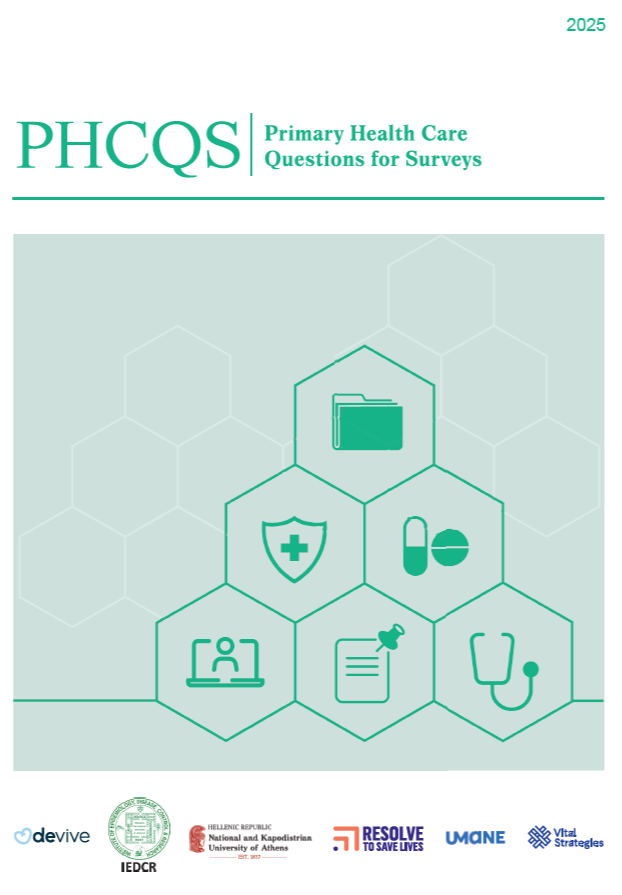
The Primary Health Care Questions for Surveys (PHCQS) project aims to standardize the global assessment of primary health care (PHC) access and unmet needs through general population surveys, particularly in low- and middle-income countries (LMICs), by establishing a core set of globally consistent indicators and survey questions.
Lower-sodium salt substitutes: Frequently asked questions
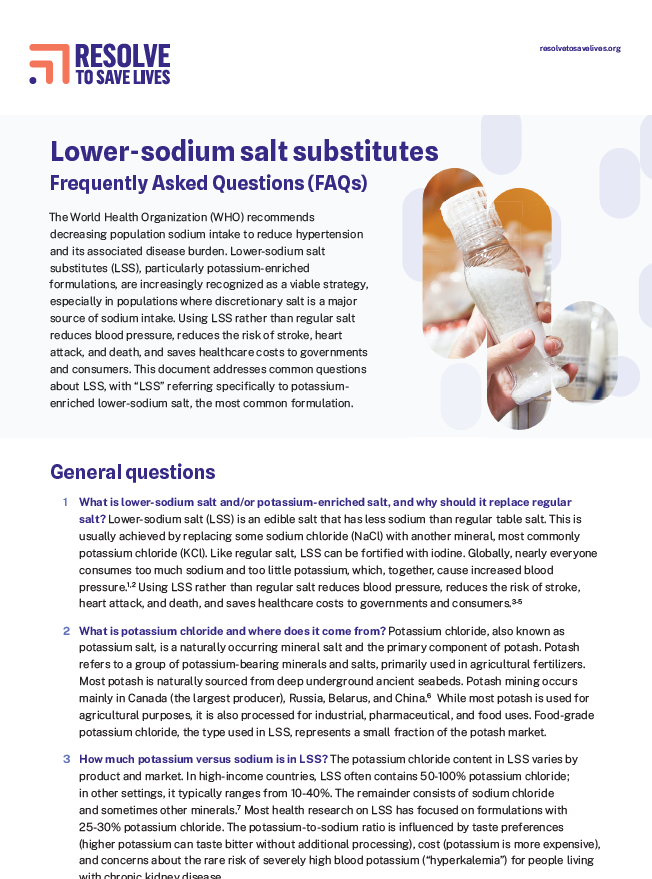
FAQ about lower-sodium salt substitutes (LSS)—an important part of a comprehensive sodium reduction package.
From signals to systems: Strengthening epidemic readiness through climate-informed strategies
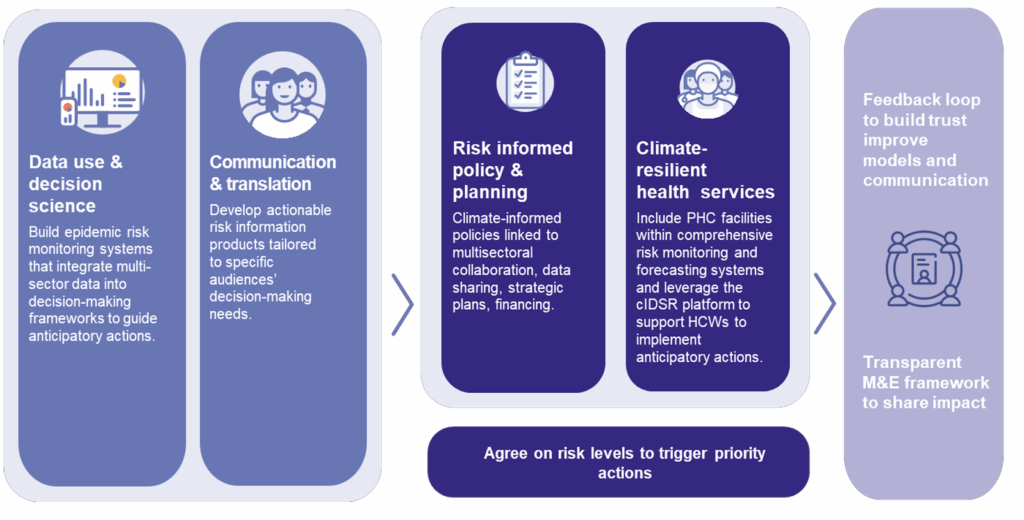
This issue brief outlines how Resolve to Save Lives is supporting governments to strengthen epidemic readiness by integrating climate data into health systems. Key strategies include building epidemic risk monitoring systems using real-time climate data, improving communication of climate-health risks, embedding climate-sensitive protocols into health policy and developing resilient primary health care infrastructure. These efforts […]
Foundations for sustainable health: A blueprint for building epidemic-ready and climate-resilient primary health care
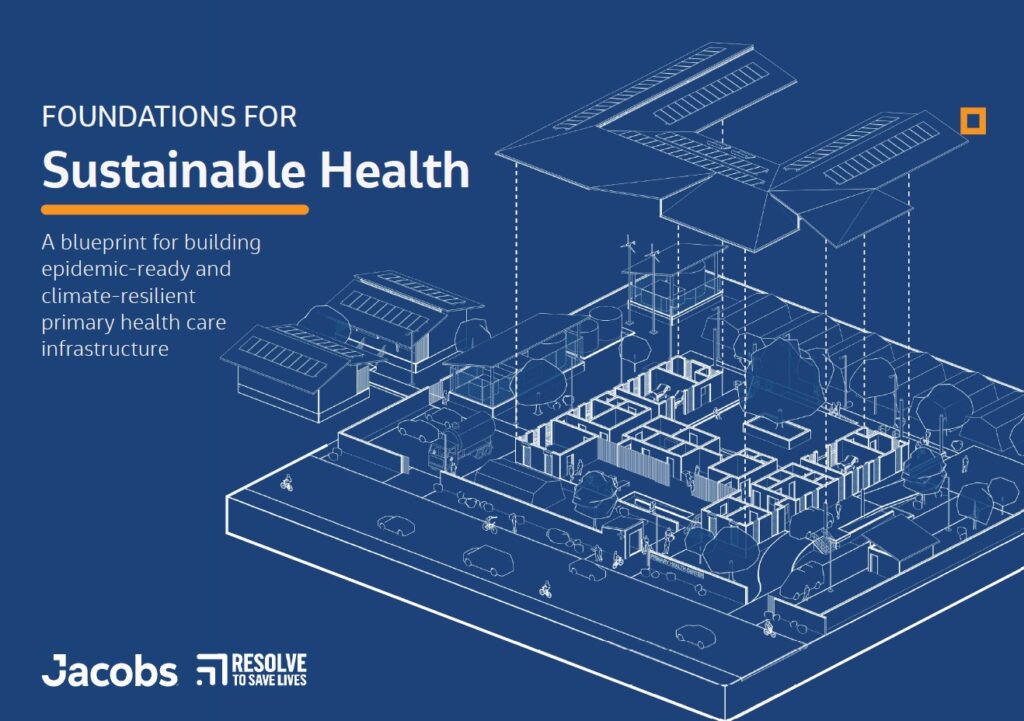
This blueprint outlines our model for epidemic-ready, climate-resilient and sustainable primary health care infrastructure using an all-hazard approach. We urge national governments to embed resilience into health and infrastructure planning. We call on donors to support integrated, scalable investments and help countries learn from what works. And we encourage facility leaders and communities to codesign and […]
From 18 countries to yours: Actionable 7‑1‑7 bottleneck insights
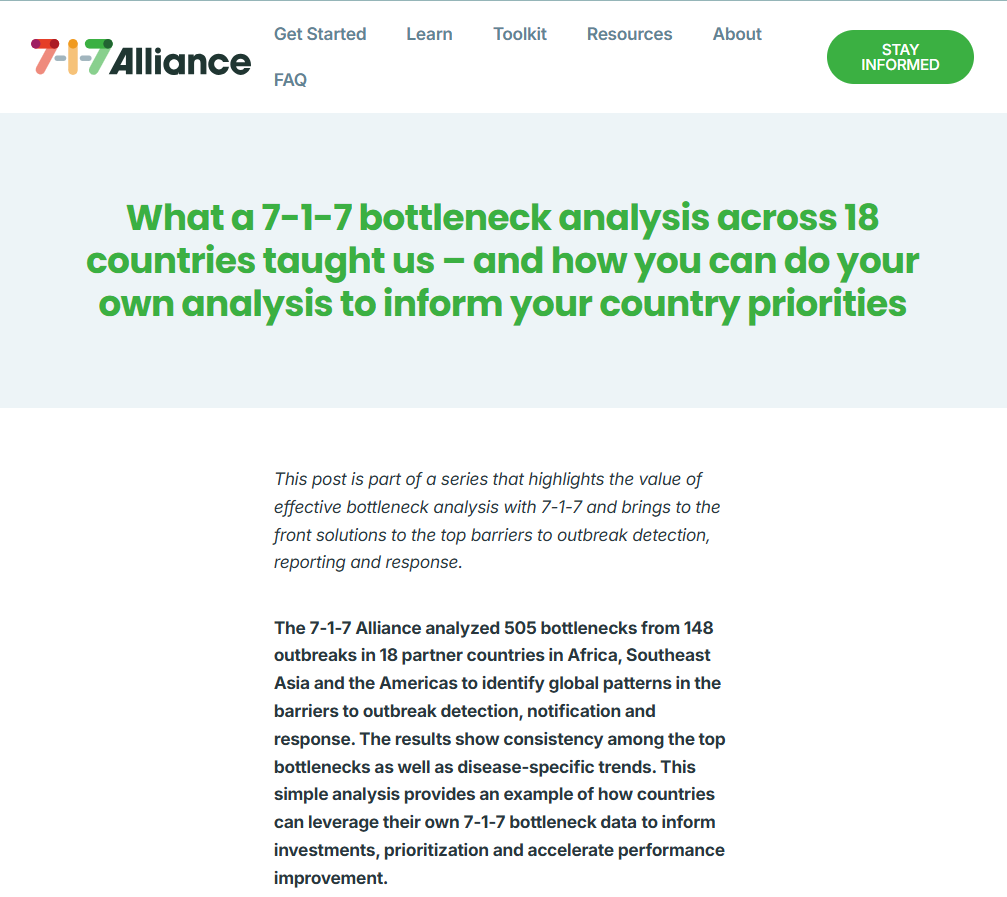
The 7-1-7 Alliance to identifies global patterns in the barriers to outbreak detection, notification and response and provides an example of how countries can leverage their own 7-1-7 bottleneck data to inform investments, prioritization and accelerate performance improvement.
Ethiopia National Non-Communicable Diseases Management Protocols
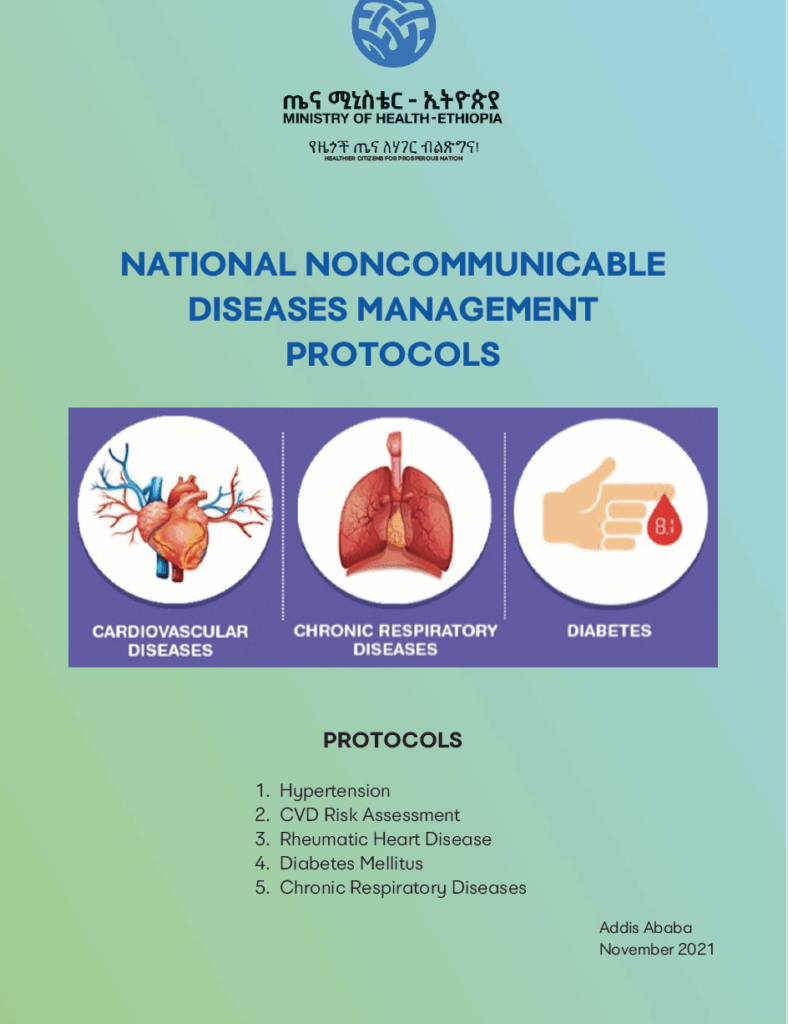
Ethiopia’s National NCD management protocols for: Hypertension Diabetes Rheumatic heart disease Chronic respiratory diseases Cardiovascular Disease (Risk Assessment)
Ethiopia Pharmaceuticals Procurement List: Third Edition
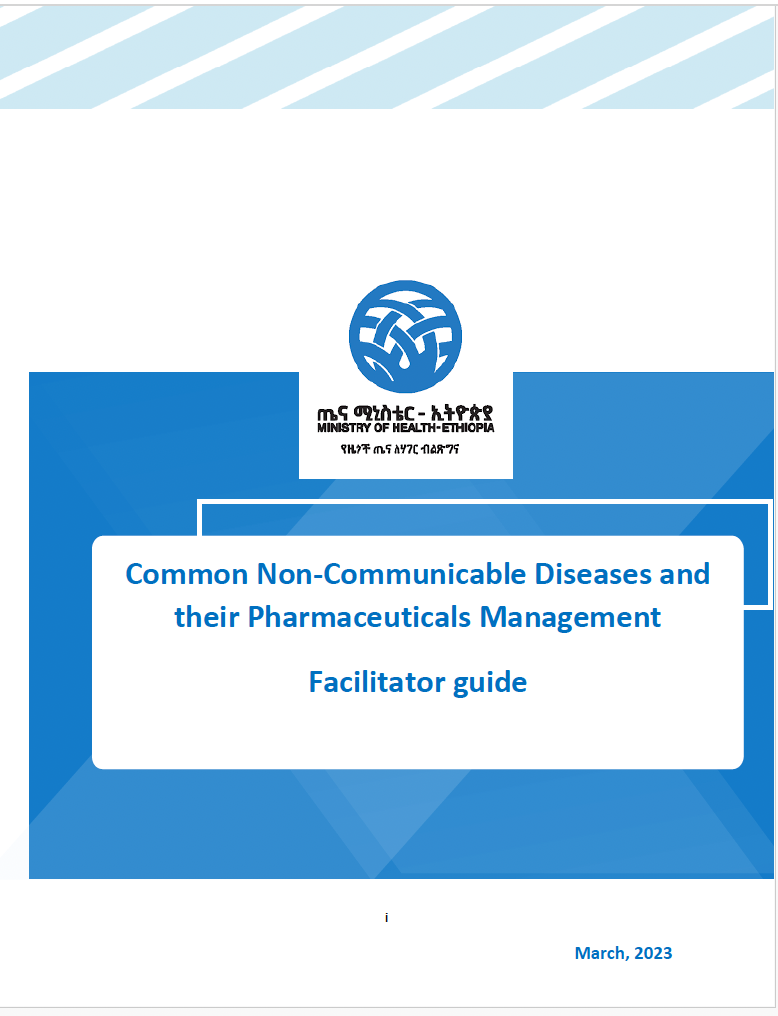
The Third Edition of Ethiopia’s Pharmaceuticals Procurement List, published in 2024 by The Ethiopian Pharmaceuticals Supply Service (EPSS).
VEN Classification of The 3rd Pharmaceuticals Procurement List

The Ethiopia VEN Classification grades medicines on the country’s 3rd Pharmaceuticals Procurement List as Vital, Essential, or Non-essential, serving as a tool to prioritize pharmaceutical procurement based on the criticality of medicines to public health, ensuring that the most crucial medicines are consistently available. This initiative not only strengthens the pharmaceutical supply chain but also […]
Common Non-Communicable Diseases and their Pharmaceuticals Management: Facilitator’s Guide

A facilitation guide for a three-day training course designed for pharmacy professionals in Ethiopia to enhance their knowledge, skills, and attitude in the effective management and rational use of medicines and health technologies for NCD management. After completion of this course, trainees will be able to: Describe major NCDs in accordance with the national […]
Improved hypertension care requires measurement and management in health facilities, not mass screening
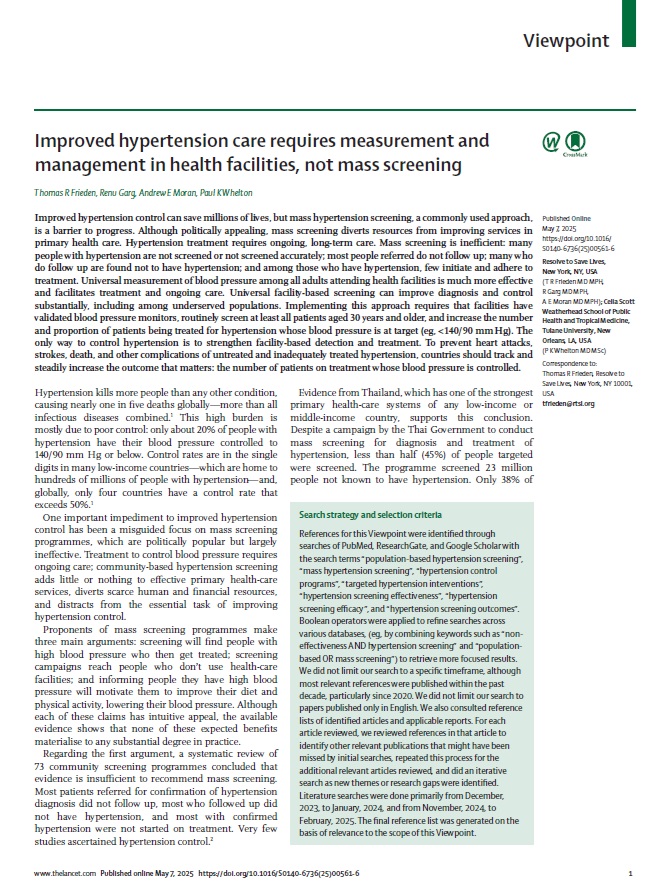
In The Lancet, we challenge the common practice of conducting mass public blood pressure screenings and note that measuring blood pressure in patients attending primary care facilities is a much more efficient and effective way to prevent heart attacks and strokes.
Epidemic-Ready Primary Health Care (ERPHC) framework and technical package
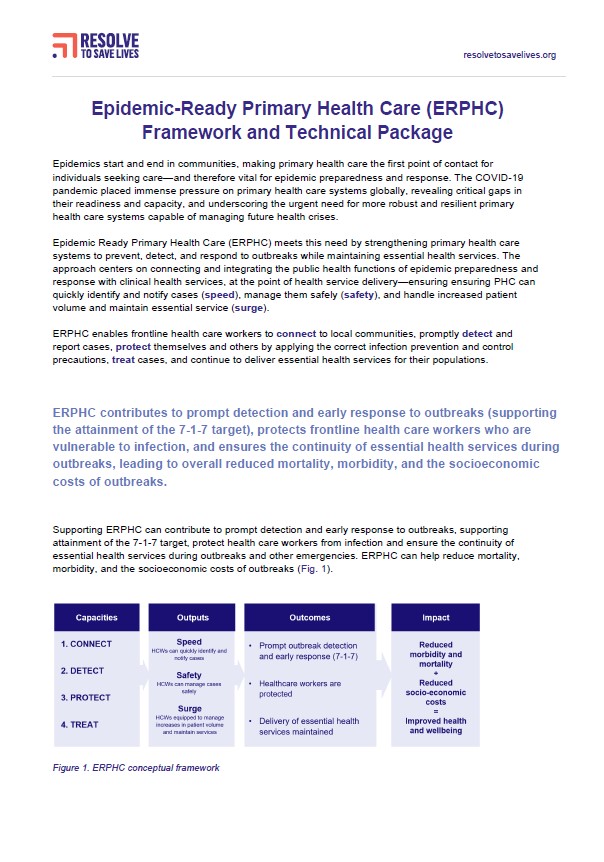
This technical toolkit explains how Epidemic-Ready Primary Health Care (ERPHC) ensures PHC systems can quickly identify and notify cases (speed), manage them safely (safety), and handle increased patient volume and maintain essential service (surge). It outlines capacities, core activities and outcomes for implementation and includes a proposed implementation model.
Actionable 7‑1‑7 bottleneck insights: Resources for rapid outbreak investigation
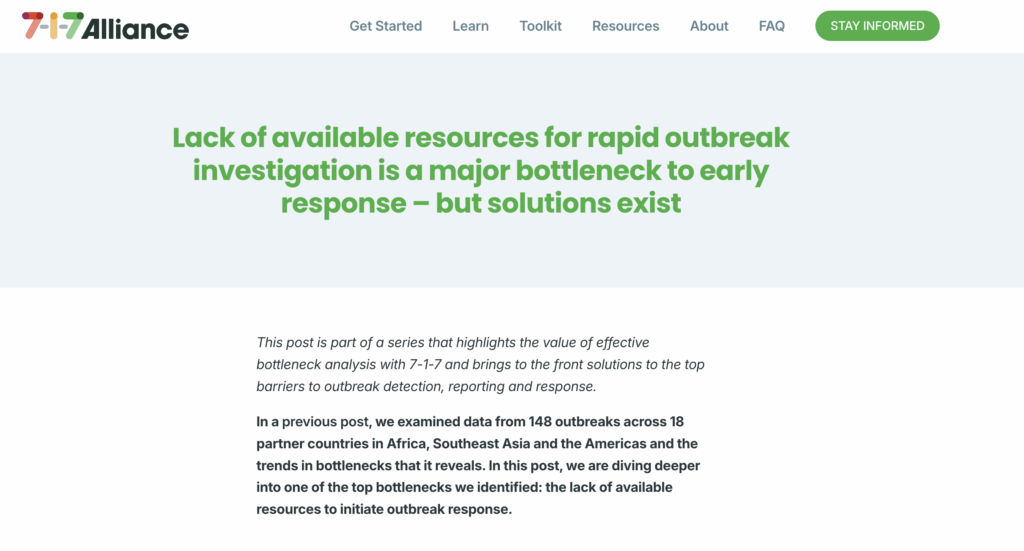
This resource from the 7-1-7 Alliance is part of a series that highlights the value of effective bottleneck analysis with 7-1-7 and brings to the front solutions to the top barriers to outbreak detection, reporting and response.
Policy brief: Front-of-package warning labels give consumers the freedom to choose healthy

This policy brief developed by Global Health Advocacy Incubator (GHAI) and Resolve to Save Lives highlights the critical role of mandatory front-of-package warning labeling (FOPL or FOPWL) in combating diet-related noncommunicable diseases (NCDs) such as diabetes, cardiovascular diseases, and obesity and saving millions in health care costs. Warning labels empower consumers with easy-to-understand nutrition information […]
Using nutrient profile models to underpin key nutrition interventions
New RTSL guide explores how to use nutrient profile models to rank food based on nutritional composition and provide the scientific foundation for healthy and comprehensive nutrition policies.